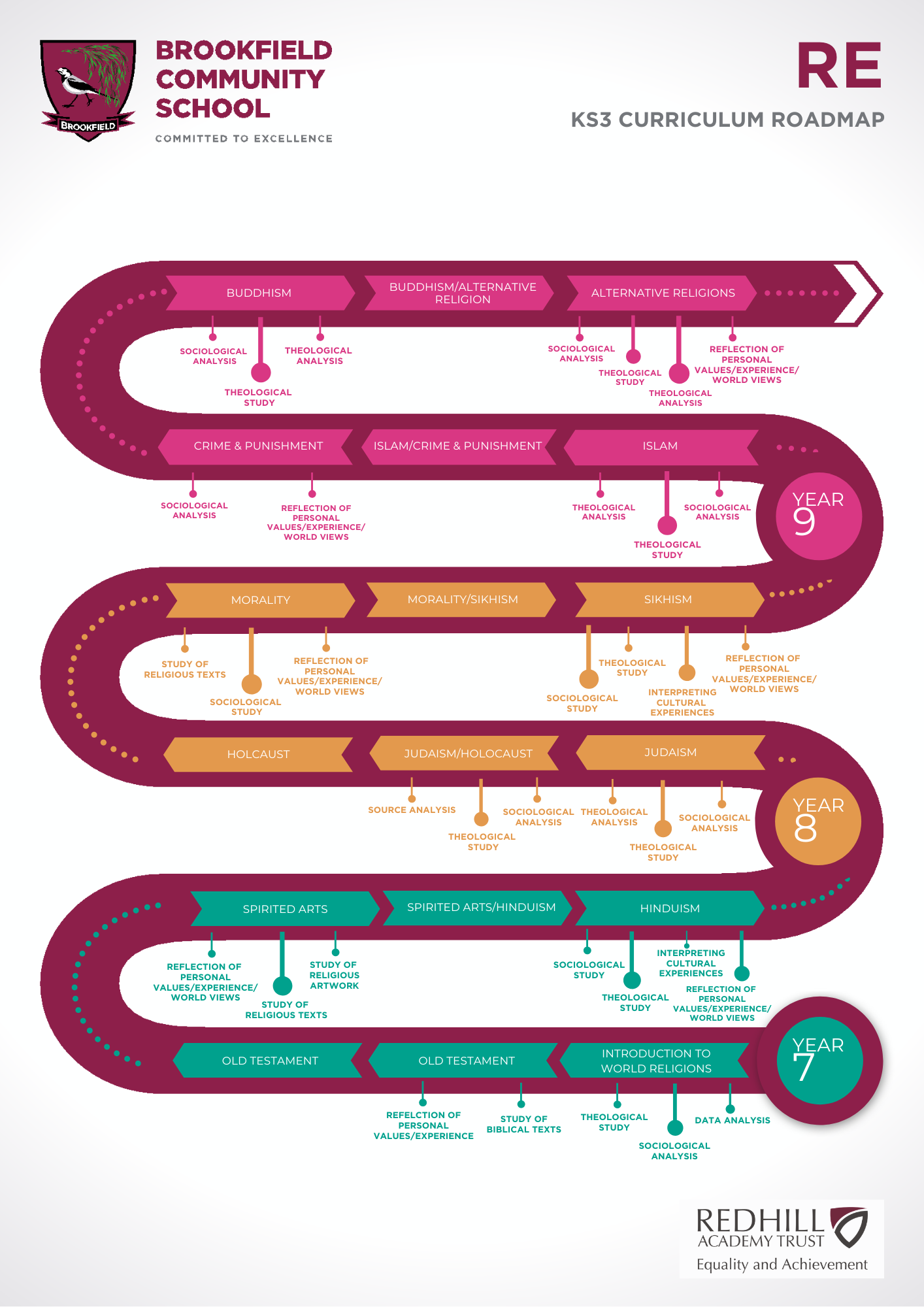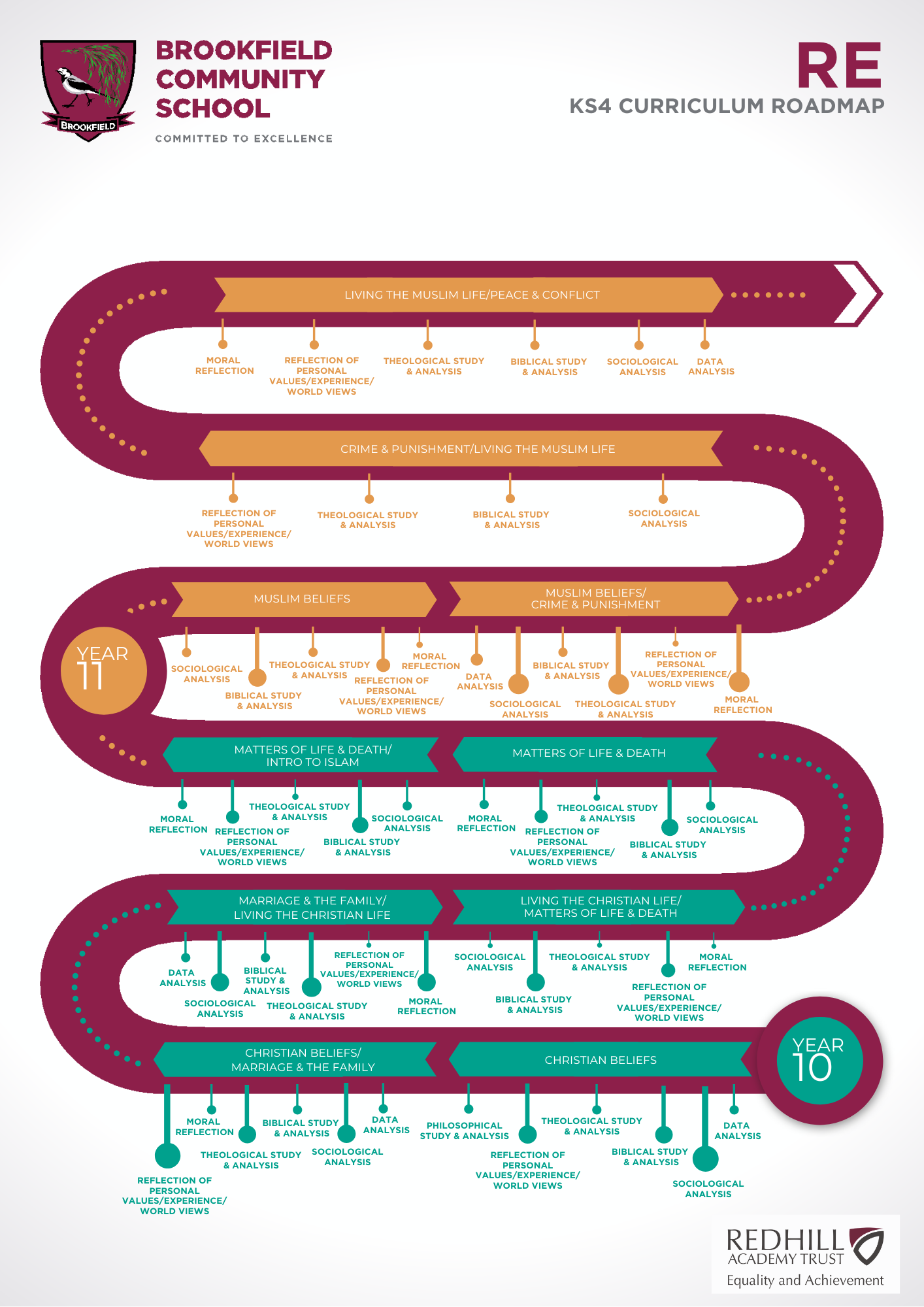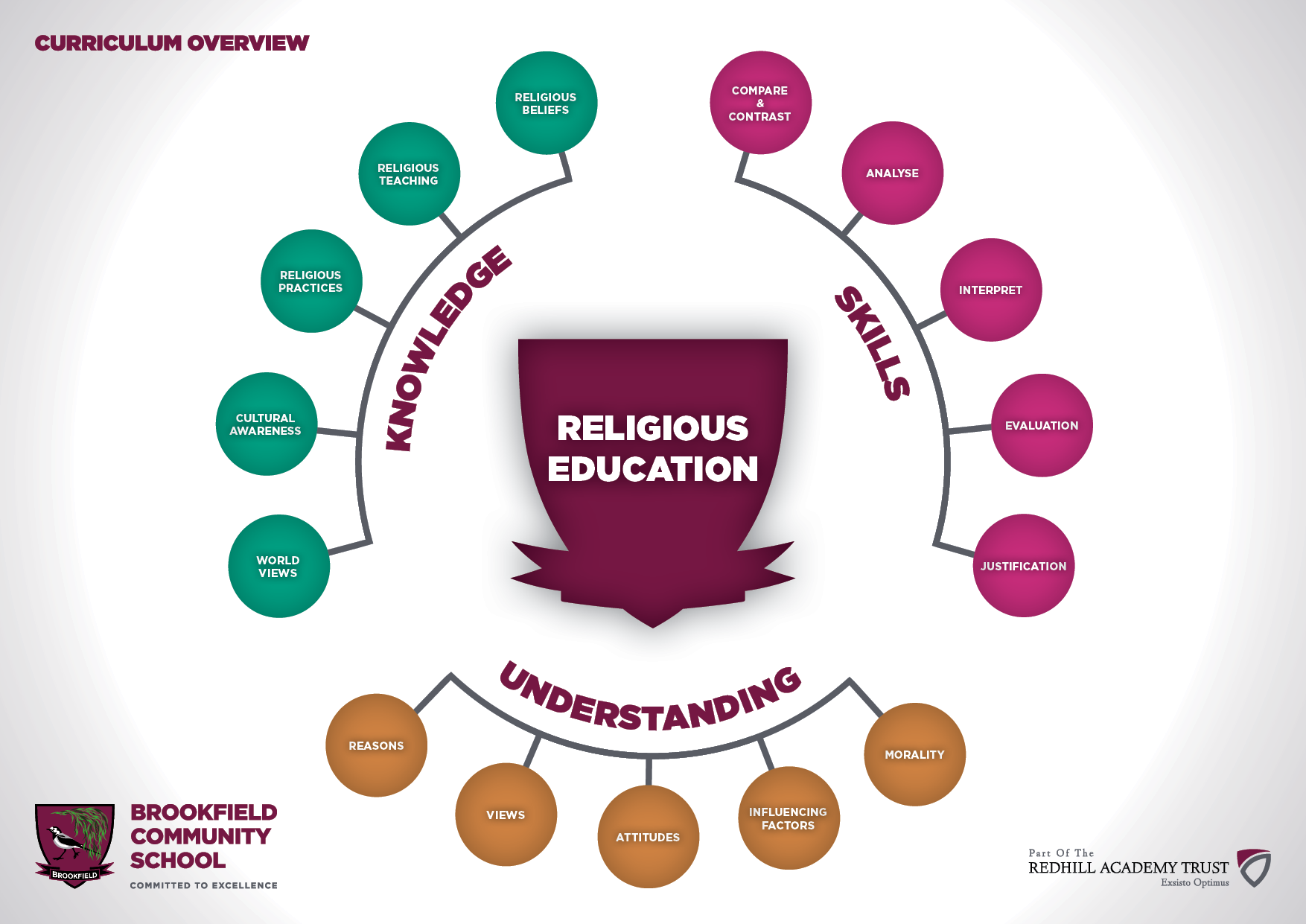Religious Education
Click image to view full size.
Introduction to Religious Education
Religious Education is a thought-provoking subject which makes a significant contribution to students’ academic and personal development. It plays a key part in the promotion of social cohesion and helps to cultivate important qualities like respect and empathy, which are vital in our diverse society.
At Brookfield, the Derbyshire Agreed Syllabus is followed. The syllabus provides all students with a knowledge of Humanism and several world religions.
The syllabus has 3 key aims:
- To know and understand a range of religions and world views
- To formulate ideas and express insights and opinions on these religions and world views
- To develop skills like two-way communication and evaluating
- To develop qualities like tolerance and empathy.
Key Stage 3
In years 7, 8 and 9, students are taught in forms and have one RE lesson per week.

Key Stage 4
GCSE Religious Studies
Exam Board: Edexcel
The Course
Two religions will be studied, and several relevant issues applied to these religions:
Year One
- Islam - Muslim beliefs
- Islam - Living the Muslim life
- Islam Crime and punishment
- Islam - Peace and conflict.
Year Two
- Christianity - Christian beliefs
- Christianity - Living the Christian life
- Christianity - Marriage and the family
- Christianity - Matters of life and death.
Assessment Objectives:
AO1
- Beliefs, practices and sources of authority
- Influence on individuals, communities and societies
- Similarities and differences within and/or between religions and beliefs.
AO2
- Analyse and evaluate aspects of religion and belief, including their significance and influence.
How are students assessed?
There are two examination papers. Both of these papers are one hour and forty five minutes in length with four compulsory questions on each paper. There is no coursework or controlled assessment.

Enrichment
To engage and further support student learning, a variety of learning resources and cross curricular links are explored.
For example, the students watch the award-winning documentary ‘Drowning in Plastic’ and explore ideas of stewardship, responsibility and eco awareness.
The study of the Holocaust allows students to watch parts of the film 'The boy in the striped pyjamas' and promotes discussion about equality, prejudice and discrimination.
Progression Opportunities
Brief information on how the subject can support the students in the future, including further education and careers.
A GCSE in Religious Studies is welcomed by colleges and universities because of the higher level thinking skills it cultivates. These include: analysing, synthesising and reasoning skills. The areas of study span a wide range of mature and interesting topics that are relevant and engaging. It is useful for a variety of career pathways and choices including: Teaching in Primary, Secondary and Higher Education, the Civil Service including the Police Force, Medicine and caring professions. It is also valued by lots of employers because of the soft skills it nurtures, for example two-way communication, the development of problem-solving skills and the promotion of empathy, tolerance and the appreciation of diversity. Religious Studies helps to develop strong academic skills such as analytical and evaluative skills, as well as, promoting good interpersonal relationships, which are useful for young people regardless of their chosen career path.


